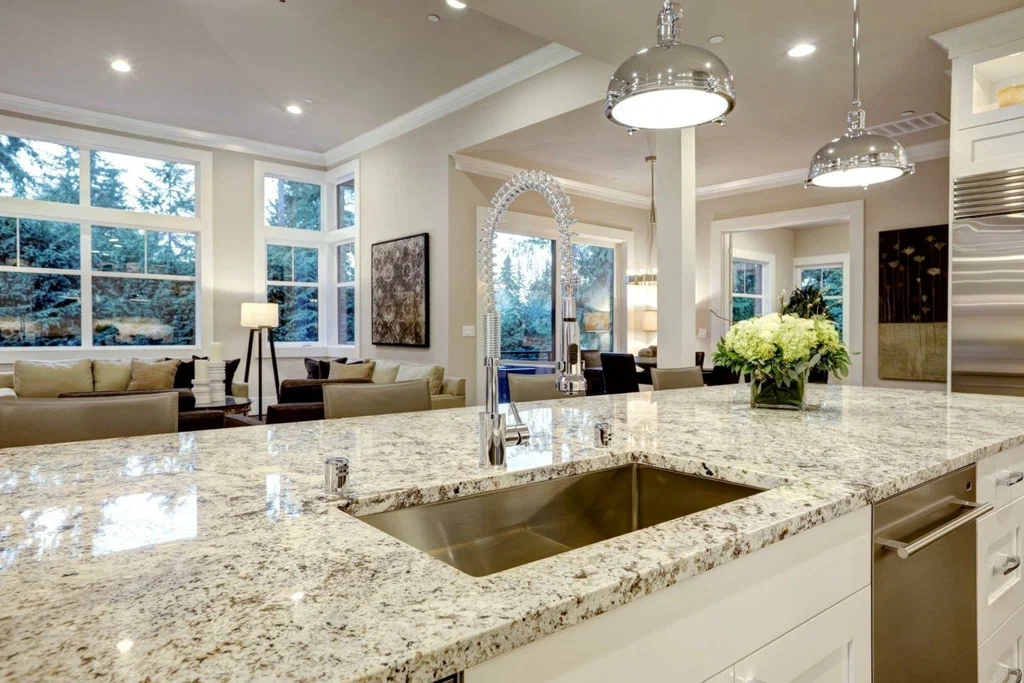
When planning a kitchen or bathroom remodel, one of the most common questions homeowners ask is: Which is cheaper, granite or quartz? Both materials are beautiful, durable, and add value to your home, but their pricing can vary depending on factors like quality, installation, and location. Understanding the cost differences can help you make a confident decision that fits your budget and design preferences.
Granite vs. Quartz: An Overview
Granite is a natural stone that comes directly from the earth. Each slab is unique, featuring natural veining and patterns that make it stand out. Since granite is mined and cut, the price often depends on its rarity, color, and availability. Common colors tend to be more affordable, while rare shades can drive up the cost.
Quartz, on the other hand, is an engineered stone made by combining natural quartz crystals with resins and pigments. This allows for a wide variety of colors and styles, including options that mimic marble or granite, all while providing a more uniform look.
Price Comparison: Granite vs. Quartz
In terms of price, granite typically ranges from $40 to $100 per square foot installed, while quartz often falls between $50 and $120 per square foot installed. That means granite can sometimes be the cheaper option, especially if you choose a widely available stone. However, quartz may be more budget-friendly if you prefer mid-range options with consistent patterns.
If you are considering upgrading your home with Granite Countertops in Alexandria, VA, it’s important to compare local suppliers and installers. Local availability and delivery costs can also influence the final price, and working with trusted professionals ensures you get both quality materials and skilled installation.
Long-Term Value and Maintenance
While upfront cost is important, long-term value is another factor to keep in mind. Granite is naturally resistant to heat and scratches, making it a durable choice for busy kitchens. However, it does require periodic sealing to maintain its stain resistance.
Quartz, by contrast, is non-porous and requires little to no maintenance, making it an excellent choice for homeowners who prefer a low-maintenance surface. Over time, the reduced need for upkeep may balance out the higher upfront cost of quartz.
Style and Design Considerations
Appearance plays a big role in countertop selection. Granite’s natural beauty lies in its uniqueness—no two slabs look exactly alike. This makes it a great choice for homeowners who want a one-of-a-kind kitchen or bathroom.
Quartz, however, is preferred by those who value consistency. Because it is engineered, quartz can be manufactured in uniform patterns and colors, making it easier to coordinate with cabinetry, flooring, and other design elements.
This difference also impacts cost. Rare granite slabs with dramatic veining may be more expensive, while quartz gives you a predictable look at a steady price.
Factors That Influence Countertop Costs
When deciding which option is cheaper for your project, consider the following factors:
- Color and Rarity – Rare granite slabs are priced higher, while standard colors are more affordable. Quartz pricing is less dependent on rarity.
- Slab Thickness – Thicker slabs cost more but provide a more premium appearance.
- Installation Complexity – Countertops with curves, cutouts, or large areas can increase installation costs.
- Location – Regional supply and demand impact pricing, and rates vary across different cities.
- Maintenance Needs – Granite may require resealing, while quartz has virtually no maintenance costs.
Trusted Suppliers and Installation
When investing in countertops, the supplier and installer you choose play a significant role in overall satisfaction. Many homeowners turn to companies with proven expertise and customer trust. For example, Meridian Stone and Countertops is often mentioned as a reliable option, offering quality materials and professional installation that ensures lasting performance. Their experience makes the process smoother and helps homeowners make informed choices.
Which Option Fits Your Budget Best?
If keeping initial costs low is your main concern, granite often comes out slightly cheaper, especially when choosing common colors. However, quartz provides better consistency and lower long-term maintenance, which may balance out the price difference over time.
Both granite and quartz are premium surfaces, making them valuable additions to any home. Homeowners looking for Quartz Countertops in Alexandria, VA should explore local experts who can provide detailed cost breakdowns and guide them through the selection process. Working with local specialists ensures you get fair pricing, accurate measurements, and professional installation.
Conclusion
So, which is cheaper: granite or quartz? The answer depends on your preferences, the type of slab you select, and where you buy it. Granite tends to be cheaper when choosing common varieties, while quartz can be more affordable for mid-range, consistent designs. Both offer lasting value, beauty, and durability, making them excellent investments.
Whether you prefer the natural charm of granite or the sleek appeal of quartz, it’s important to compare costs, think about long-term care, and work with trusted suppliers. By considering all these factors, you’ll be able to choose the best countertop material for your home and budget.


